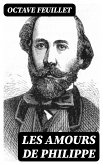In "The Amours of Zeokinizul, King of the Kofirans," Claude-Prosper Jolyot de Crébillon embarks on a provocative exploration of desire, power, and cultural identity through the lens of an exotic Eastern setting. Written in the early 18th century, this novel sits at the crossroads of French literature and the burgeoning genre of sentimental fiction. Crébillon's ornate prose and intricate characterizations invite readers into a vivid tableau where the complexities of love and court intrigue unfold amidst an opulent yet dangerous backdrop, reflecting the Enlightenment's fascination with the 'Other.' The book deftly weaves elements of satire and allegory, posing questions about human nature and societal norms that resonate with contemporary themes of love and ambition. Crébillon, a key figure in the French literary scene, was influenced by the cultural and philosophical movements of his time, including the rise of the novel as a legitimate form of storytelling. His background, marked by personal and social turbulence, informed his perspectives on love, identity, and the embodied experiences of his characters. This work exemplifies his skill in merging eroticism with critical commentary, showcasing the internal tempest of passion against the rigidity of societal expectations. Highly recommended for readers interested in the intersections of culture, eroticism, and sociopolitical commentary, "The Amours of Zeokinizul" invites passionate exploration into the depths of human emotion. Crébillon's richly constructed narrative will captivate scholars and enthusiasts alike, making it an indispensable addition to any literary collection.
Dieser Download kann aus rechtlichen Gründen nur mit Rechnungsadresse in A, B, BG, CY, CZ, D, DK, EW, E, FIN, F, GR, H, IRL, I, LT, L, LR, M, NL, PL, P, R, S, SLO, SK ausgeliefert werden.









